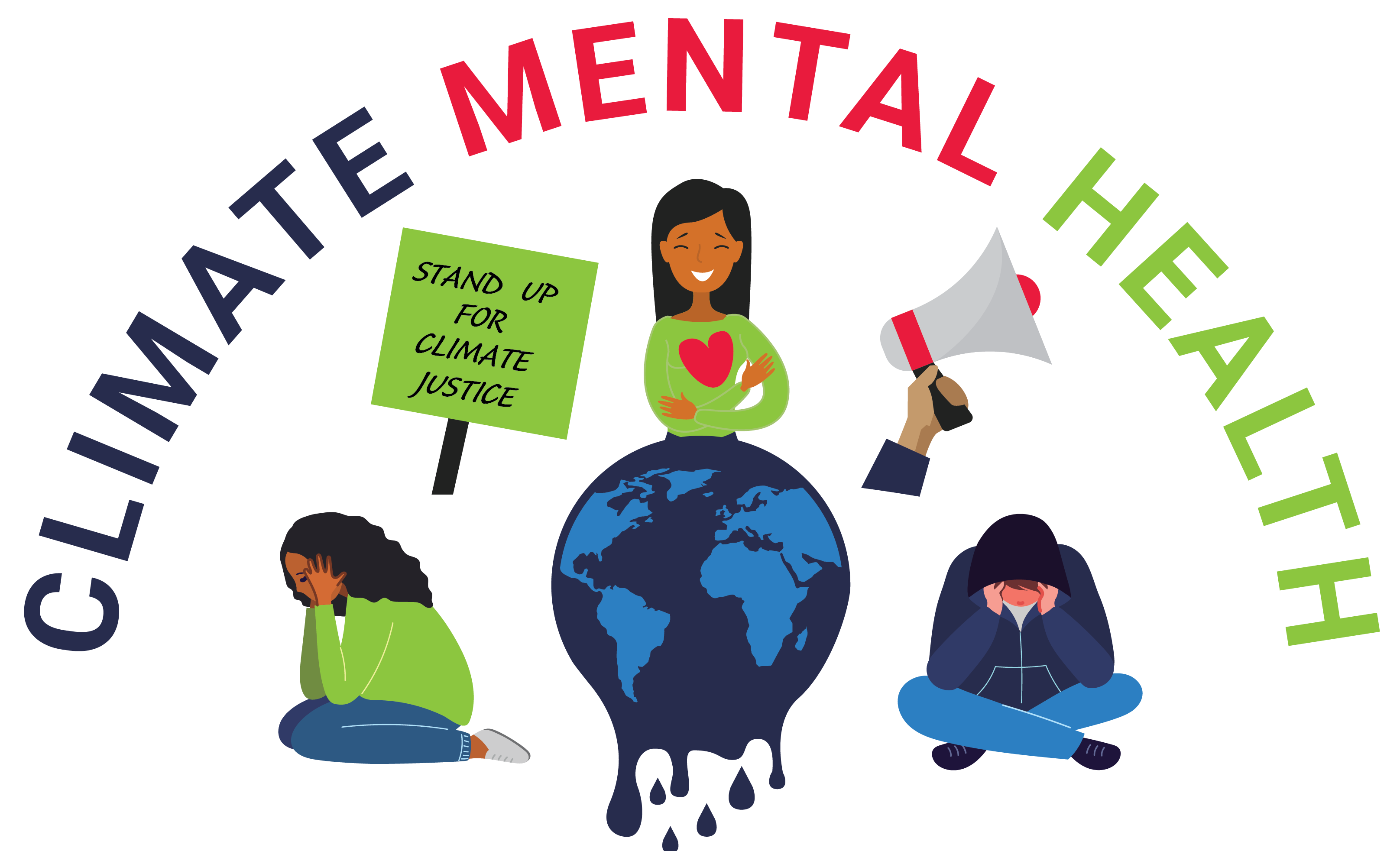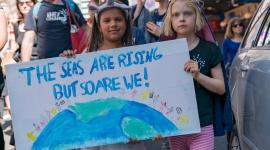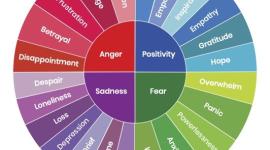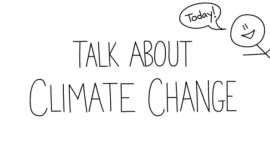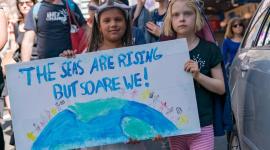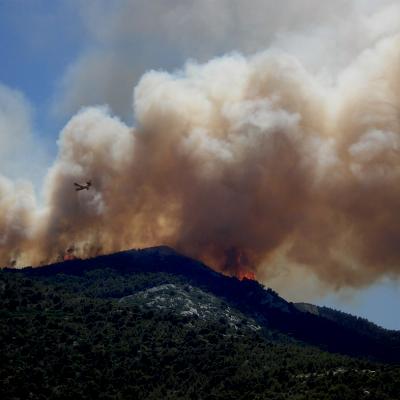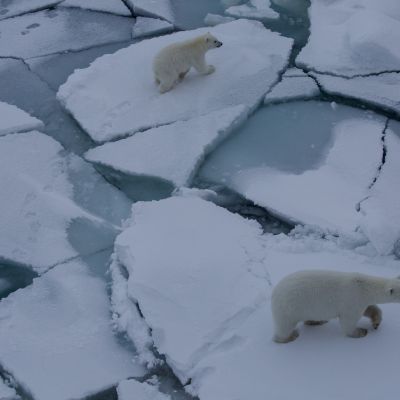Climate Mental Health
Learn strategies to help students process climate-related emotions, build resilience, and inspire positive action and emotional well-being with CEEE's climate mental health resources.
In response to the climate crisis, many around the world, especially young people, have reported feeling overwhelmed, powerless, sad, and anxious. How can we teach these topics without overwhelming our students or causing anxiety? How do we support youth in stepping up rather than shutting down?
Explore our strategies of teaching climate towards empowerment, short activities to address climate emotions in educational contexts, curriculum that integrates mental health strategies, and webinar recordings around climate emotions for your professional learning.

Many of the strategies described below are designed to be used by students, teachers, and caregivers. As you read, think about strategies you can adopt to support your students at all age levels (Your Guide to Talking With Kids of All Ages About Climate Change), those that you can recommend to your students' parents and caregivers, and those you can employ yourself.
Consider visiting the Climate Mental Health Network for more resources and strategies to support climate mental health learning.
The videos and curriculum below are also offered through The Climate Literacy and Energy Awareness Network (CLEAN), a nationally renowned, award-winning, online clearinghouse that features 800+ high-quality teaching resources around climate and energy topics that are peer-reviewed for scientific accuracy and pedagogical best practice
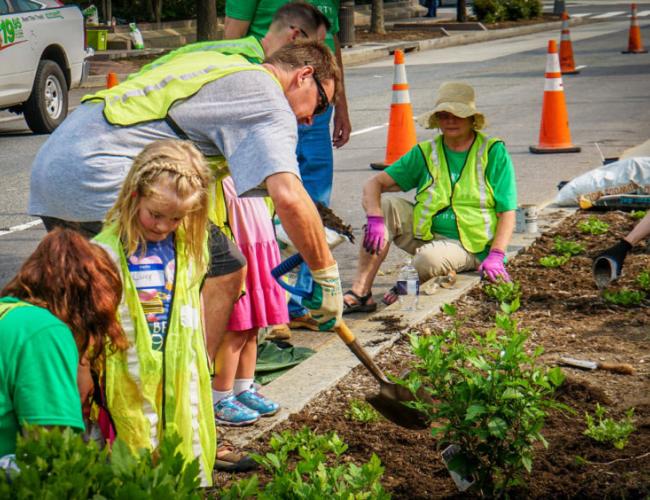
Resilience is the ability to recover and adapt in the face of challenges. It is essential for communities navigating the aftermath of natural disasters, and it is just as important for individuals who need resilience to heal from trauma and move forward with hope.
To support this need, HEART Force created the Trauma-Informed Practices & Mental Health Strategies to Foster Hope and Resilience collection. This resource collection helps educators frame lessons about natural hazards through a trauma-informed lens that emphasizes healing, hope, and proactive action. The collection includes a trauma-informed practices guide, lesson plans that encourage a hopeful community vision and solution-oriented actions, and additional resources on climate and mental health.
The Hazard Education, Awareness, and Resilience Task Force (HEART Force) is an award-winning collaborative project implemented by the NOAA Cooperative Institute for Research in Environmental Sciences (CIRES) and Climate Adaptation Partnership (CAP) partner Western Water Assessment that engages rural Colorado middle and high school students, teachers, and communities to take proactive steps in preparing for and responding to natural hazards.
Strategies to Address Climate Emotions in Educational Setting
These pages are a collection of resources to support educators and parents with strategies for supporting youth in experiencing climate emotions.
Fostering Climate Mental Health in Learners

When teaching about climate topics, it is best practice to facilitate the expression, processing, and validation of youths' climate emotions (Climate Change & Youth Mental Health, 2021) while also encouraging positive emotions and reducing stress.
The goal is not to eliminate negative emotions because those who experience negative emotions about climate change are more likely to engage in climate action (Affect and Emotions as Drivers of Climate Change Perception and Action, 2021). However, if emotions exceed a personal threshold, it can result in becoming angry or disengaged.
Resiliency is not about the absence of negative emotions; it is about managing these emotions without letting them get "stuck" to avoid larger mental health challenges.
By becoming more resilient through taking action, listening, finding shared solidarity in the community, moving through our grief, incorporating trauma-informed practices, practicing social, emotional, and positive coping skills, and cultivating hope, we can expand our resiliency and move towards empowerment.
Research shows that climate-related disasters significantly affect mental health. Depression and PTSD can persist for years after wildfires or hurricanes. Youth exposed to these hazards may struggle with emotional regulation, academic performance, and resilience. Climate-driven displacement and loss of stability further disrupt development.
Eco-anxiety, chronic worry, and fear about climate change’s long-term effects are growing concerns. A global survey of 10,000 young people revealed distress, including sadness, anxiety, and distrust toward governments. Many struggle to navigate an uncertain future, affecting their security. Addressing these impacts requires emotional support and coping strategies.

